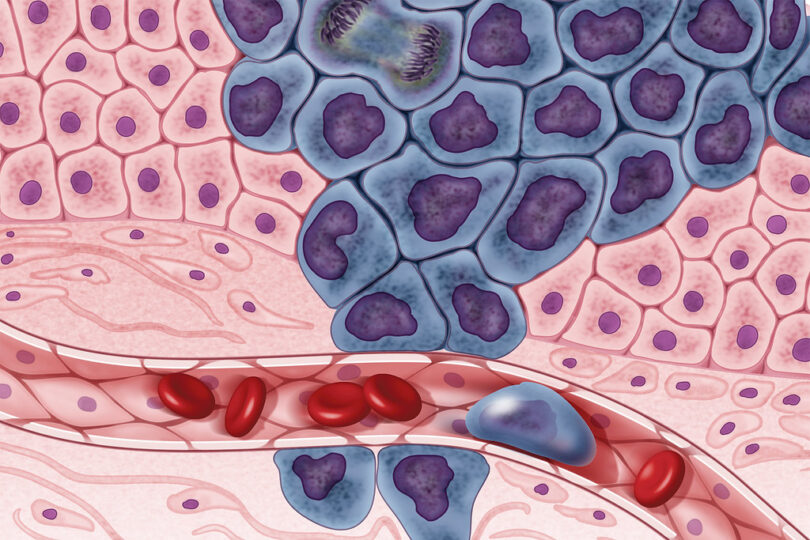Once upon a time, in a world filled with bubbly temptations and whispered health concerns, a particular tale caught hold of eager ears: the Cancer-Diet Soda Conundrum. Like a compelling fable, it spun a web of fear and uncertainty, leaving many to question the safety of their beloved fizzy companions. But in this article, we embark on a quest to unravel the enigmatic myths surrounding soda and cancer, armed with meticulous research and a penchant for truth. Brace yourself, dear reader, for we venture into the realm of facts and fictions, debunking the soda misconceptions that have long plagued our minds.
Introduction: Unraveling the Soda Myths: Separating Fact from Fiction
1. Myth: Diet Soda Causes Cancer
One of the most pervasive myths about soda relates to its potential links to cancer. This myth is based on the notion that the artificial sweeteners used in diet sodas can be carcinogenic. In reality, the link between diet soda and cancer is anything but clear-cut. Studies have been conducted, with mixed results, with some finding no link between cancer and diet soda and others suggesting a correlation. Ultimately the jury is still out on this one, and the general consensus is that further scientific research and conclusive evidence is necessary to establish any kind of link.
2. Myth: Diet Soda is Healthier Than Regular Soda
The assumption is that because it’s calorie-free, diet soda is healthier than regular soda. This isn’t necessarily true. The various artificial sweeteners used in diet sodas can have a range of harmful effects. And because diet sodas are artificially sweetened, they can also affect your taste buds, making it more difficult to adjust to the taste of healthier alternatives, such as water.
3. Myth: Diet Soda Causes Weight Gain
Another common myth is that diet soda causes weight gain. It’s easy to understand why this myth has gained traction over the years, as research shows that artificial sweeteners can indeed affect hormones related to hunger and satiation. However, research also shows that people who consume diet soda tend to eat other unhealthy foods as well. So while diet soda may be capable of contributing to weight gain, it is not the sole cause.
4. Myth: Diet Soda Revs Up Your Metabolism
Finally, some people believe that diet soda can boost your metabolism. However, there is absolutely no scientific evidence to support this claim. While there are certain ingredients in some diet sodas that might have a minor impact on metabolism, these are not significant enough to have any real impact on your metabolism in the short or long term.
The Link Between Soda Consumption and Cancer: Untangling the Claims
If you’ve wondered whether soda could be linked to cancer, you’re not alone. Many people are concerned about the potential risk of soda consumption and cancer. But what’s the truth behind these claims?
Fortunately, extensive studies have been conducted in order to help us better understand the risks of long-term soda consumption. Here are five key findings on the relationship between soda and cancer:
- Regular soda consumption is associated with an increased risk of kidney cancer. This is likely due to the high sugar content of regular soda, as well as the amount of artificial sweeteners used in some diet sodas.
- Diet soda consumption is connected to an increased risk of esophageal and liver cancer. This is likely due to the fact that diet sodas contain artificial sweeteners, such as aspartame, which have been linked to cancer.
- Soda does not cause cancer directly. While it may be associated with an increased risk of certain types of cancer, it does not cause cancer directly.
- The overall risk of cancer is small. While there may be a link between soda consumption and cancer, the overall risk of developing cancer is still relatively small.
- It’s important to limit your soda consumption. While the overall risk of developing cancer is small, it’s still important to limit your soda consumption, especially in relation to other unhealthy habits.
At the end of the day, the link between soda consumption and cancer is still unclear. While there may be an increased risk of certain types of cancer, the overall risk is still small. It’s important to do your own research and make an informed decision that’s best for you.
Understanding Diet Soda: Analyzing the Ingredients and Their Relevance
Myth: Diet Soda Causes Cancer. It’s a widely held belief that drinking diet soda can increase one’s chances of developing cancer. But the truth is far more nuanced than the simple ”yes or no” answer most people are after. Recent studies suggest that certain artificial sweeteners, when consumed in high levels, may increase the risk of cancer due to the chemicals they are made from. However, diet soda itself does not cause cancer.
Breaking Down Artificial Sweeteners
- Aspartame: FDA approved and present in most diet sodas, this artificial sweetener has been studied and deemed safe for consumption in reasonable quantities.
- Acesulfame Potassium: Acesulfame Potassium is a more recent artificial sweetener, and is a no-calorie sugar substitute.
- Sucralose: This newer sweetener is derived from sugar, yet it’s calorie-free and does not affect insulin response.
Moderation is Key
Like all things, diet soda should be consumed in moderation. If your diet consists of only diet soda, then it is highly likely that the artificial sweeteners that are ingredients of the beverage can affect your body in a negative way. It is better to consume other better, healthier alternatives such as plain water, tea, and coffee. Likewise, regardless of the type of liquid you ingest, it’s still wise to limit sugar and sweetener intake.
Examining Artificial Sweeteners: Addressing Concerns and Misconceptions
Soda is a beloved beverage consumed by fans old and young worldwide. The sugary refreshment, however, has come under criticism in more recent years due to its potential health risks. One of the most talked-about topics is whether artificial sweeteners in soft drinks can cause cancer. Here, we explain why this fear is unfounded and explain why artificial sweeteners are a safer alternative than regular soda.
What is an Artificial Sweetener?
Artificial sweeteners are food additives used to artificially sweeten food and beverages. They are much sweeter than sugar but, calorie-free. As a result, they are widely used to reduce sugar consumption without compromising on taste.
Do Artificial Sweeteners Cause Cancer?
The answer is a resounding ‘No’. Despite lingering fears and misconceptions, multiple scientific studies have established that artificial sweeteners are safe for consumption.
Approved artificial sweeteners such as aspartame, acesulfame-potassium, sucralose, saccharin, and neotame are all deemed safe for use, as long as it is included within the acceptable daily intake (ADI) level. This is regulated by the Food and Drug Administration (FDA) and certified by other food safety regulatory authorities such as Health Canada and the European Food Safety Authority.
Benefits of Artificial Sweeteners
In comparison to regular sodas with high amounts of sugar, artificial sweeteners provide a way to sweeten foods and drinks without adding calories or leading to a sharp increase in blood sugar, making them useful for maintaining a healthy weight. Moreover, research has identified potential linkages between artificial sweeteners and improved insulin levels – further adding to their potential health benefits.
Conclusion
At the end of the day, it is important to remember that just because something is ‘artificial’ does not make it bad. Instead, it is important to evaluate the evidence and be properly informed before making assumptions. In the case of artificial sweeteners, a wealth of evidence has not only proven their safety, but potential health benefits as well.
The Role of Soda in a Balanced Diet: Navigating the Health Impact
Soda has been a source of controversy for years, with many people believing that the sugar-laden beverage can significantly impact our health and lead to conditions such as cancer. But is this really true?
While some studies have linked diets high in sugar to an increased risk of certain cancers, there is no solid evidence to support the claim that soda consumption alone is a direct cause of cancer. However, that doesn’t mean soda can’t have an impact on your health and wellbeing.
Be mindful of the risks of drinking soda
Here are some of the health risks of drinking soda regularly:
- Weight gain
- Increased risk of developing type 2 diabetes
- Tooth decay and gum disease
- Heart disease
- High blood pressure
With these risks in mind, it’s important to be mindful of how much soda you drink, and to make sure it fits into a balanced diet. While it may be tempting to indulge in soda on a regular basis, try to limit your intake and opt for healthier choices such as water, unsweetened tea, and natural juices.
An occasional treat
It’s ok to enjoy a soda or other sugary beverage occasionally, but be sure to maintain a balanced diet and to stay mindful of the potential health risks. A healthy diet should be comprised of nutrient-dense, wholesome foods and drinks, with the occasional treat thrown in for good measure!
Exploring the Latest Research: Surprising Findings on Soda and Cancer Risk
Soda has long been a target of nutrition researchers as many popular varieties contain high amounts of sugar and additives that could potentially be unhealthy. As such, many people have been confused about the connection between soda consumption and cancer risk. A recent study has revealed some interesting findings that could help us better understand the relationship between these two.
Low Sugar, High Risk? Surprisingly, when it comes to the risk of cancer, the researchers found that diet soda posed a greater risk than regular soda. The study found that people who drank two or more servings of diet soda per day experienced a higher risk of portion of cancer compared to those who did not drink any. This finding was in contrast to regular soda or non-diet soda, which demonstrated no increased risk when consumed in moderation.
Why the Differences? The researchers suggest that the different types of sweeteners that are used in diet soda may play a role in how these drinks affect our bodies. For example, artificial sweeteners like aspartame have been linked to changes in the body that can potentially lead to cancer. Additionally, the lack of calories in diet soda could lead to “metabolic disruption” that makes it easier for tumors to develop.
Key Takeaways:
- Diet soda was found to increase the risk of cancer more than regular soda.
- Artificial sweeteners like aspartame could increase the risk of cancer.
- The lack of calories in diet soda could lead to metabolic disruption, which can increase cancer risks.
Overall, it is important to consider these findings when making decisions about what types of drinks to consume and in what quantities. While it is still too soon to definitively draw conclusions, further research will be needed in order to better understand how different types of dietary components can affect our long-term health.
Are There Safer Alternatives? Exploring Drinks with Lower Health Risks
The idea that drinking diet sodas can be bad for your health is commonly talked about, but does it have any truth? Let’s explore the various health risks associated with drinking diet soda and uncover the truth about this much talked about “cancer conundrum.”
- Caffeine: Most diet sodas contain caffeine, a powerful stimulant known to increase alertness and energy and can be habit-forming. Caffeine has also been linked to heart palpitations, headaches, insomnia, and a general feeling of restlessness.
- Aspartame: Aspartame is the most commonly used artificial sweetener in the production of diet soda. It has been linked to a host of health issues, including headaches, anxiety, rashes, dizziness, and even cancer.
- Carbonation: Diet soda contains carbonation which has been linked to indigestion and acid reflux. Additionally, excessive carbonation has been linked to higher levels of stomach acid which can cause stomach irritation and in some cases, may even lead to an increased risk of developing ulcers.
- Empty Calories: Diet sodas contain no nutritional value and contain empty calories. Consuming too many of these can also lead to weight gain, diabetes, and even heart disease.
There is no one-size-fits-all answer to the diet soda conundrum. The best way to make sure that you are staying healthy is to make sure that you are drinking in moderation and keeping an eye on the ingredients in your beverages.
So, if you’re on a health and fitness journey, it might be a smart idea to start exploring other alternatives, such as sparkling water, herbal teas, vegetable-based drinks, fruit and vegetable juice, or coconut water. These beverages can be a healthier alternative to diet sodas and even provide important vitamins and minerals along with hydration for your body.
Practical Tips to Reduce Soda Intake: Simple Changes for Better Health
For decades, scientists and health experts have debated the implications of drinking soda, particularly whether diet soda increases the risk of cancer. Although there has not been a definitive answer, here is what we do know:
- Sugar-sweetened soda has been linked with a higher risk of obesity, diabetes, and heart problems. To reduce your risk, it’s best to avoid sugar-sweetened sodas entirely.
- Diet sodas still contain some type of artificial sweetener, which may be linked to an increased risk of cancer. The research on this is ongoing, but if you are concerned, you may want to limit your intake or switch to other sugar-free alternatives such as tea or seltzer water.
- Artificial sweeteners have been linked to an increased risk of other adverse health effects such as weight gain and mood swings. Try to avoid them altogether if you can, or look for better alternatives such as stevia or monk fruit.
However, even if you are still drinking soda, there are some simple changes you can make to reduce your intake. Students of all ages can benefit from diluting their soda with water or adding more ice, as this will reduce the amount of soda you consume overall. Additionally, reducing your portion sizes can also make a difference. Try limiting yourself to one cup of soda per day or swapping it out for some fresh fruit.
At the end of the day, moderation is key. Sodas and other sugary beverages should be enjoyed in moderation, as part of a balanced diet. So, while it’s important to be aware of the potential risks associated with soda, it’s also good to remember that occasional indulgence shouldn’t be too much of a cause for concern.
Guidelines for Moderation: Striking a Balance in Soda Consumption
Many believe consuming diet soda is a healthier alternative than regular soda. However, there’s a hidden truth underneath this claim. According to recent research, substituting regular soda with diet soda may not exactly be the right answer to staying healthy and not increasing the risk of cancer.
- Regular sodas contain natural sugars. Regular sodas contain natural sugars, which, when consumed in large amounts, can interfere with diabetes control. Diet sodas do not contain these sugars, but they do contain artificial sweeteners like aspartame, which may be linked to diseases like cancer.
- Diet sodas have been linked to weight gain. In the past 20 years, there has been a dramatic increase in the consumption of diet sodas, which may be linked to an increase in obesity rates in certain populations. Therefore, those aiming to lose weight should reduce their consumption of diet sodas.
- Soda consumption should be monitored closely. Excessive consumption of either regular or diet sodas can cause health problems. Therefore, soda consumption should be reduced as much as possible and moderated at all times for optimal health.
In conclusion, striking a balance in soda consumption is key to being adequately healthy. Drinking soda should not be avoided altogether, but rather, moderated in order to not over consume either of the two types.
Conclusion: Making Informed Choices: Dispelling the Cancer-Diet Soda Conundrum
Soda Industry: Fairytale or Fact?
Lately, there have been a lot of rumours and misconceptions about the relationship between diet soda and cancer. The idea that diet soda causes cancer has been amplified by people wanting to spread misleading information. But just how true is this claim?
Unpacking Diet Soda Nutrition Facts
The truth is, diet sodas aren’t bad for you and there is minimal evidence that having diet soda can lead to cancer. Diet sodas contain 0 calories and 0 sugar, making them an excellent choice for those looking to watch their figures. Diet sodas are low in sodium and don’t contain any artificial sweeteners, which makes them a healthy alternative to full-sugar soda.
Health Benefits of Diet Soda
The health benefits of diet soda don’t stop there. Drinking diet soda regularly can help protect against stroke, stroke-related death, high blood pressure, and obesity-related cancers. Those who switch from full-sugar soda to diet soda can drastically reduce their risk of developing these conditions.
Making Informed Choices
Ultimately, it is important for people to make informed decisions about their nutrition, especially when it comes to soda. People should research the facts before believing in spreading false information and myths. While diet soda is a healthier alternative to full-sugar soda, moderation is always key. So, the next time you have a craving for a soda, just remember the facts and make an informed decision!
Q&A
Q: Can drinking diet soda really cause cancer?
A: Let’s dive into the fascinating realm of soda myths and debunk the cancer-diet soda conundrum!
Q: Is it true that artificial sweeteners present in diet soda are carcinogenic?
A: Contrary to popular belief, no credible scientific evidence suggests a direct link between the consumption of artificial sweeteners in diet soda and the development of cancer.
Q: But what about those studies claiming otherwise?
A: While some studies have claimed a connection between artificial sweeteners and cancer, they are usually based on high-dose animal experiments, which do not accurately replicate typical human consumption. In reality, the evidence supporting the cancer-diet soda connection is scant and lacks consistency.
Q: If it’s a myth, why do people still believe it?
A: Misinformation can easily spread, especially when it aligns with our preconceived notions or fears. Sensational headlines often overshadow the nuances of scientific research, leading to myths becoming ingrained in popular belief.
Q: Are there any health concerns associated with diet soda then?
A: As with any food or drink, excessive consumption is not advisable. Diet soda contains artificial sweeteners and additives, which in excessive amounts, may lead to certain health risks. However, occasional or moderate consumption is generally considered safe for the average person.
Q: Does that mean drinking regular soda is a safer option?
A: Not necessarily. Regular soda is laden with high sugar content, contributing to various health issues such as obesity, diabetes, and tooth decay. Choosing between regular and diet soda depends on personal health goals and dietary needs. Moderation is key!
Q: Can diet soda contribute to weight gain?
A: While some studies have shown a correlation between diet soda consumption and weight gain, it is likely due to other factors such as a sedentary lifestyle or poor overall dietary choices. It’s essential to remember that a balanced diet and active lifestyle are crucial for maintaining a healthy weight.
Q: Is quitting soda altogether the only solution?
A: Quitting soda entirely is a personal choice, not an absolute necessity. For those interested in reducing soda intake, gradually replacing it with healthier, hydrating options like water, infused beverages, or herbal tea can be a great way to achieve a healthier balance.
Q: What’s the bottom line regarding the cancer-diet soda conundrum?
A: The cancer-diet soda myth lacks substantial scientific evidence to support it. While diet soda may contain artificial sweeteners, consuming it in moderation is generally considered safe. Remember, embracing a well-balanced diet and lifestyle choices is key to maintaining good health. So, although there’s still much to learn about the relationship between diet soda and cancer, we can confidently say that existing evidence doesn’t support a link between the two. Although moderation is always the key, diet sodas can still be part of a balanced and healthy lifestyle. So the next time you reach for a can of soda, rest assured you won’t be putting your health in danger!








